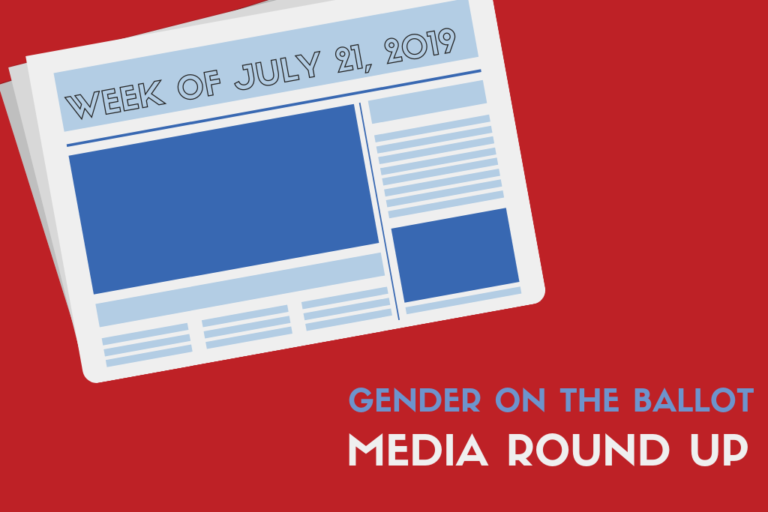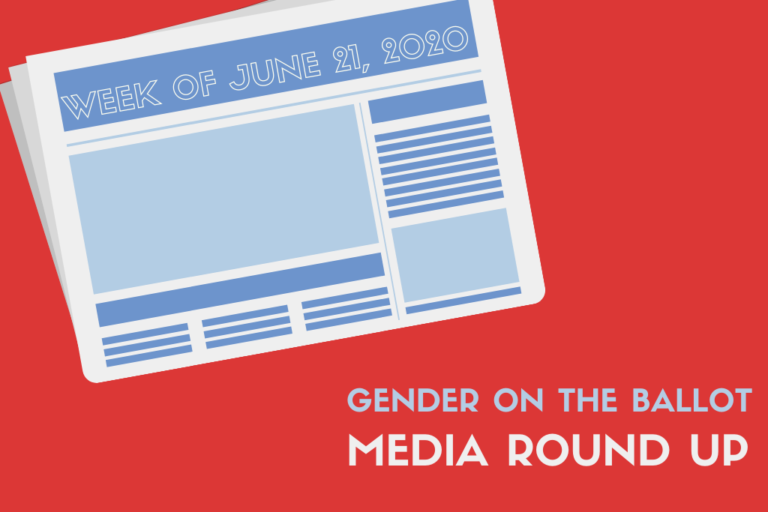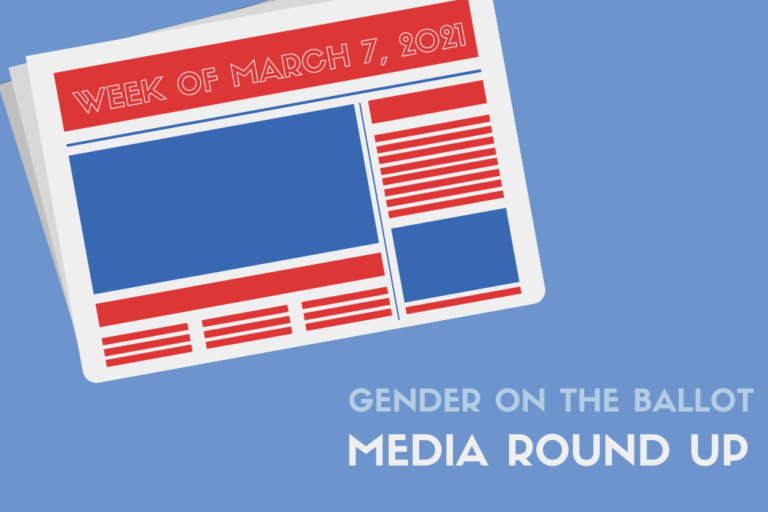Happy Friday! Welcome to our Media Round Up, where we collect and share our…
Media Round Up: Week of March 21st

Happy Friday! Welcome to our Media Round Up. Each week we’re collecting and sharing our favorite gender + politics stories. Here’s what caught our eye this week:
3 women in Biden’s cabinet are going to boost the post-COVID recovery
Katica Roy, Fortune
Despite contributing over $2 trillion to the U.S. economy since 1970 and accounting for 90% of income gains for middle class households over the past four decades, women continue to face systemic barriers that prevent them from fully participating in the economy. In President Biden’s freshly formed Cabinet, which is made up of half women, there are three women in particular who will play key roles in driving economic prosperity in the coming years — Treasury Secretary Janet Yellen, Small Business Administrator Isabel Guzman and Secretary of Commerce Gina Raimondo. Yellen, who has been focused on developing ways to combat the structural wage imbalance that has developed and worsened over the last 50 years, has said that optimizing US childcare infrastructure and expanding access to paid family leave is essential in order to increase women’s labor force participation rate.
You can read the full article here.
‘Don’t mess with us’: history-making Korean American congresswomen fight back against racial bias
Dana Bash & Bridget Nolan, CNN
Reps. Young Kim and Michelle Steel, the first Republican Korean American women to serve in Congress, testified for the first time as lawmakers to call out discrimination in the wake of the mass shootings of Asian Americans in an Atlanta spa last week. “This should not have to be said, but I want to be very clear. No American of any race or ethnic group is responsible for the COVID-19 pandemic. The virus does not discriminate, it affects everyone,” Kim said in her testimony. This tragic event follows an alarming rise of violence against Asian Americans, with the group Stop AAPI Hate reporting nearly 3,795 incidents of anti-Asian hate in the past year.
You can read the full article here.
To increase women in US politics, upgrade the electoral process
Cynthia Richie Terrell, The Hill
The 2020 election cycle saw powerful strides for women in politics, with 118 women now serving in the U.S. House and 24 women in the U.S. Senate. Although this is a record-breaking number the progress towards gender equity is not moving fast enough and it’s unlikely that most of us will see true gender balance in elected office in our lifetimes at this pace. In the coming weeks, Congress will reintroduce the Fair Representation Act, a bold reform that would ensure a more proportional representation in our legislative bodies by implementing a multi-winner ranked choice voting method proven to improve the chances of having more women in office.
You can read the full article here.
She Experienced Busing in Boston. Now She’s the City’s First Black Mayor.
Ellen Barry, The New York Times
On Monday, Kim Janey became acting mayor of Boston, making her the first woman and the first person of color to occupy that position. With Martin Walsh’s confirmation as Secretary of Labor, it appears that the era of Irish and Italian American male mayors in Boston is coming to an end. Janey assumes the mayoral role until the election in November, and while she has yet to announce whether she will run for the full term, the candidates are majority women and people of color. “I’m at a loss for words, because, at 11 years old, I saw firsthand some of the darkest days of our city. And here I am,” said Janey, who experienced racist attacks when she was bussed into a Boston neighborhood as a young girl in the city’s integration effort.
You can read the full article here.
Women have been hit hardest by the pandemic economically. Will that bring them closer politically?
Kelsy Kretschmer and Leah Ruppanner, The Washington Post
The COVID-19 pandemic has had a disproportionate and devastating economic effect on women. 32 percent of women ages 25 to 44 left the labor force to care for their children, which has been a major setback for women’s economic security. Black and Latina women have been the most affected by this, partly due to the fact that many of these women worked in industries most affected by the coronavirus pandemic, such as restaurants, retail stores and hotels. Although women face similar challenges and constraints, they have not historically acted as a politically cohesive group. However, due to the COVID-19 pandemic and ensuing economic crisis this may be starting to change.
You can read the full article here.






